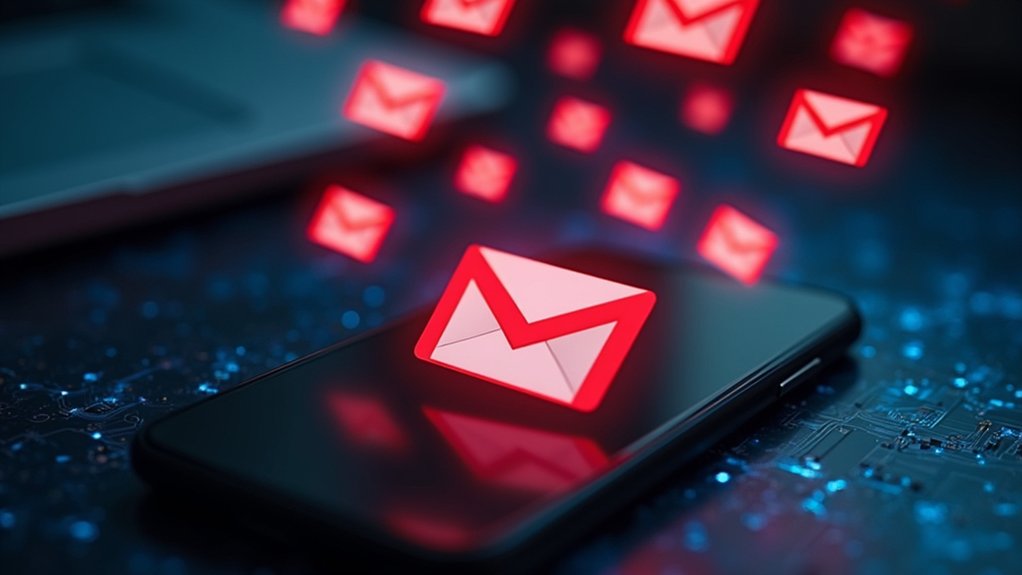As artificial intelligence reshapes the cybersecurity environment, Gmail users face an unprecedented wave of sophisticated phishing attacks that exploit AI-driven deception techniques to bypass traditional security measures. The scale of this threat has intensified dramatically, with phishing attempts capable of evading filters increasing by 49% since early 2022, as nearly 5% of these evasion-capable attacks now utilize AI for generating convincing communications.
The statistics reveal a concerning setting for email security. Over 3.4 billion phishing emails circulate daily, representing 1.2% of global email traffic, with phishing accounting for 36% of all cybersecurity breaches worldwide. Gmail, serving as a primary target, faces persistent threats affecting approximately 1.8 billion accounts through recent sophisticated campaigns that demonstrate alarming effectiveness. Zero-day exploits continue to pose significant risks as attackers leverage previously unknown vulnerabilities in email systems.
AI-augmented attacks have transformed traditional phishing methodologies, allowing cybercriminals to create highly personalized messages that mimic legitimate communication patterns. These sophisticated campaigns can deceive professionals in less than 60 seconds, incorporating realistic phone calls and emails that impersonate trusted services like Google support.
AI-powered phishing attacks now deceive even experienced professionals within minutes using convincing impersonations of trusted services.
The integration of AI allows attackers to generate convincing content as they exploit advanced evasion techniques. Attackers employ Open Graph Spoofing Toolkits to manipulate URL metadata, creating deceptive links that appear to originate from trusted sources. These tools facilitate real-time URL appearance modifications, greatly improving click-through rates as they bypass traditional security filters.
Cloudflare integration further assists malicious actors in managing domains and monitoring link status efficiently. Despite Gmail’s strong defensive infrastructure, which blocks nearly 15 billion spam emails and over 100 million phishing emails daily using AI-powered detection systems, attackers continue adapting their methods.
Google has implemented mandatory two-factor authentication for 150 million accounts, as 83% of organizations now require multi-factor authentication for IT access. The financial implications remain severe, with phishing-related data breaches averaging $4.9 million in immediate and long-term costs. Data breaches have become increasingly common worldwide, with the average cost now exceeding $150 million when accounting for multiple incidents affecting major corporations.
Successful attacks can result in permanent account loss, identity theft, and extensive financial fraud, as compromised accounts may provide access to confidential corporate or personal data. These coordinated phishing waves have prompted urgent warnings from technology companies and law enforcement agencies, emphasizing the critical need for improved vigilance among Gmail users. Cybersecurity experts emphasize the vulnerability of human error in these sophisticated attacks, as phishing remains particularly easy to execute when targeting unsuspecting users.









